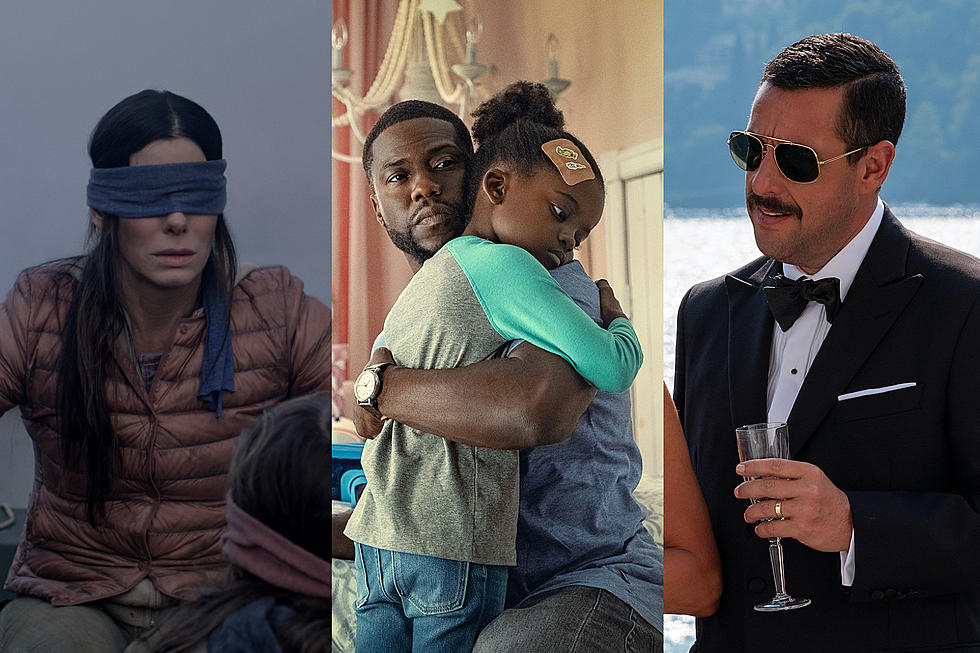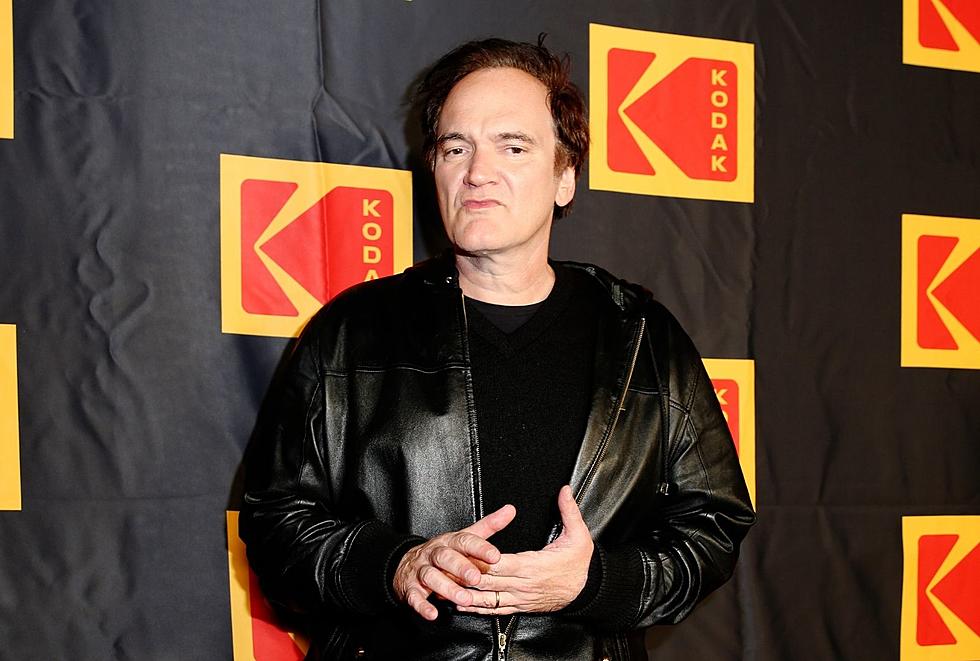
Jim Parsons: The Man With the Golden Statue(s)
Growing up in Houston, Jim Parsons always wanted to be an actor. “My mother had these, I don’t know if they’re called memory books, or what, but every year of my life, there was a set of questions I had to answer,” Parsons tells me. “One of them was ‘What do you want to be when you grow up?’ And very early on, I began to say, ‘Movie star.’ Several years in a row. I don’t think I necessarily meant on the big silver screen; I think that was just the only word I knew for what I was feeling. It was always there.” And now with two Emmys and a Golden Globe for his role as Sheldon on surprise CBS hit The Big Bang Theory, he’s suddenly that grown-up he always wanted to be.
And quite the surprise it is: The show’s recent fifth-season premiere ranked No. 1 in its time slot, winning the coveted 18-to-49-year-old demographic (so, like, everyone who matters) with about 15 million viewers overall. Big Bang is a show about some geniuses whose placement on the spectrum varies, whose work in the field of physics varies — perhaps they’re going to work in a storyline about Sheldon discovering how to halt aging — and then also this decently attractive blond waitress. It’s a multiple-camera sitcom with a laugh track. If you wrote these facts down on paper and showed it to a television executive five years ago, you’d probably get slapped in the mouth, because not a whole lot about any of this makes much sense, except for Parsons’ talent, which is undeniable. Everything else is perhaps summarized astutely by this idea: The best thing that happened to television is its demise. But before we get there, let’s take a look at how Parsons became the poster child (-faced man) of television’s new identity.
If his love for acting began as an abstract, preadolescent obsession in Texas, that same place would mature his passion into something very tangible and real. Parsons’ first role was in the first-grade play, and he continued to act throughout public school. But during his freshman year at University of Houston, acting temporarily took a backseat to fear-borne pragmatism. “It’s a bad idea. It’s not a safe idea. I didn’t have enough passion at that moment,” says Parsons, quoting his interior monologue. “But I roomed with my best friend at the time, and he was an actor, and he was working a lot in the theater, and being around him all year, watching him get ready for auditions or shows, I realized how desperately I missed it. Luckily, I have parents who didn’t lose their minds when I said I’d like to major in theater.”
Any implication from those memory books that Parsons wanted to be a “movie star” — a childhood misnomer that may have indicated a desire for celebrity — was corrected by Parsons’ pure and simple devotion to theater. He spent about seven postcollegiate years living in Houston, working in the theater department at the university, then branching out and working with a local theater group. For free mostly. At night mostly. During the day (and also at night), Parsons held jobs that ranged from bank teller to temp to Whole Foods cashier.
“I didn’t even work at the main theater,” he sort of laughs, but not really. “I just worked nonstop. It was a really healthy treadmill to be on. I just kept having to do, do, do one play to the next.”
This workaholic mentality (plus the aforementioned seven years of regional theater work) eventually surpassed what Houston had to offer. While temping for an “early online city-guide-type thing,” Parsons realized that he needed to find what he calls the next road. “I was never one to pack up my knapsack and hit the pavement in New York. I needed a reason to go somewhere.” That somewhere was graduate school at the Old Globe theater at the University of San Diego. “And while I got more out of grad school than I ever bargained for, in so many wonderful ways,” he continues, “the sole reason I began looking into it was as the springboard to get me out of town.” He knew the program would lead to showcases in Los Angeles and NYC — that there would be “a reason I’m there. Not just dumb luck. Or wishing.” He eventually got an audition in front of TV demigod Chuck Lorre (creator of Big Bang and Two and a Half Men), and got the gig. All it took was, like, two decades of hard work. Now Parsons is one of the most acclaimed actors on television. But did his confused childhood fusion of acting with celebrity return after winning his awards? Not so much. On his gold statues, Parsons oddly offers: “I’ve always enjoyed almanacs. I’ve always enjoyed lists of things. I’ll go look at past Wimbledon champions, whatever. And as particular as this may sound, and slightly nebbish, one of the thrills I do receive from being a part of the Emmys and Golden Globes is I’m so pleased my name will be on that list, in that almanac. I don’t know what that says about me, probably more than I should be revealing, but I did specifically think about that. I think that sounds strange probably.” Sure, maybe. But that doesn’t mean a talented actor shouldn’t get recognized for his hilarious portrayal of a character who captivates a golden demographic of Americans.
The question, though, is why this role of a genius physicist? Look at Parsons’ competitors at the Emmys: Louis C.K., Steve Carell, Alec Baldwin? Each character couldn’t be more different than the next: a New York City single-father comedian with extremely dark tendencies; a small-town, working-class moron with a heart of gold; a business mogul with conservative (albeit satirical) values. Not only that, but the shows starkly vary in aesthetics. Are we to see what type of metaphor or symbolism these characters represent for the current human condition? Or is it just that these guys are hyper-talented, and this is their entertaining work? If anything, it seems to imply one clear fact: Television is firing on all fronts, shooting in the dark, hoping to hit something big and tasty.
“It’s the mystery of the unknown, what’s going to catch on and why?” says Parsons. “There have been a lot of shows with great writing and great actors that have gone by the wayside. It’s interesting. When we first started, there was article after article saying that [the multiple-camera] form is dying, and there are probably people who still believe it is — hell, maybe it is. But right now, it doesn’t feel like it. Right now, it feels like we’re living in an age where there’s both. And why shouldn’t there be? There are plenty forms of television.”
If there is one indicator of television adapting to the times, it’s perhaps not this hodgepodge of shows and the success of one over another, but the presence and treatment of homosexuality. Parsons, who’s out, doesn’t play a homosexual; Sheldon is straight.
“I’ve been watching television for years. We’ve come a long way. It’s beyond just being more common — or maybe that’s exactly the good point about it: It’s common. It’s ordinary. It’s unremarkable. I don’t think we’re there just yet, necessarily, but it’s getting close. I’m sure there’s a segment that it is still a big deal with, but it doesn’t seem to be a large enough number anymore to make it stop happening. The larger number is with those who either feel a) I like this, or b) who gives a shit? And on some level, I think that ‘who gives a shit’ is the best place in the world.”
(This article originally appeared on the cover of the Winter 2012 issue of ANTENNA.)
More From Antenna Mag









